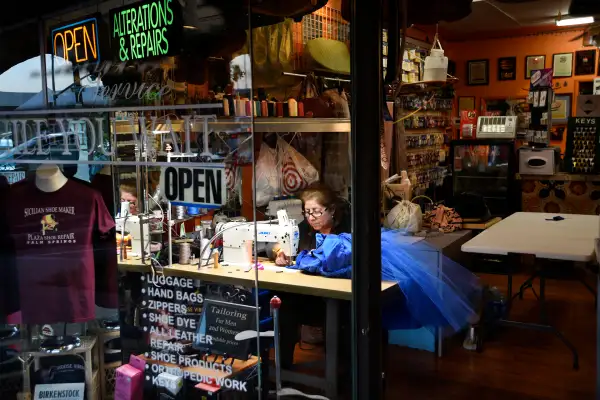Will the New Small Business Loan Package Actually Help Small Businesses This Time?

Small business owners thought they’d landed a lifeline when Congress approved $349 billion worth of “Paycheck Protection Program (PPP)” loans earlier this month.
Within two weeks, though, that money ran out — scooped up, in no small part, by companies like Potbelly Corp., a national fast food chain with over 400 locations, and Hallador Energy, a coal-mining company that brought in $323 million in revenue last year.
Both of those companies received $10 million in federal aid each, public filings show; money Congress designated to aid thousands of family restaurants, mom and pop shops, and other small businesses struggling to survive COVID-19’s economic warpath.
And while the Senate has already approved a second stimulus package replenishing the loan program with another $320 billion (which is going to the House for vote and President Trump is expected to sign within the next few days) the number of small businesses already queued up in the system “will more than use that up,” says Anne Zimmerman, a certified public accountant and co-chair of Businesses for Responsible Tax Reform.
“It’s going to go as fast as computer systems can work,” she says.
On some level, the backlog is the product of legislators having to throw together an economic stimulus package at lightning speed, experts like Zimmerman say.
But some of it is by design.
“Small businesses,” are defined as those with less than 500 employees by the Small Business Administration (SBA), which oversees the PPP loans. But Congress made an exception for chains and franchises with less than 500 staffers at individual locations, allowing companies like Ruth’s Chris, a national restaurant chain with more than 5,000 employees, to apply for the maximum $10 million (Ruth’s Chris actually got $20 million, since it applied for, and received, the maximum amount for two of its restaurants/locations.) And since companies don’t have to pay these loans back if they keep a certain percentage of their employees on payroll, it’s basically free money.
Small business owners—REAL small business owners, that is—faced application hurdles, too.
The PPP loans are doled out on a first-come-first serve basis, which stacked the deck against these business owners from the start.
Big businesses have long-standing relationships with banks, and the PPP funds they're requesting are worth millions of dollars — far more than the average $240,000 loan small businesses are after. So it's no surprise, Zimmerman says, that banks like JP Morgan Chase, Wells Fargo, and others are accused of prioritizing loans that earn them fatter commissions.
"Banks seem to have taken care of their best customers first," she says.
If you’re a mom and pop shop, you probably don’t have the time or resources to figure out how to quickly get your application paperwork in order, or a team of outside consultants who can liaise with banks on your behalf.
Banks did take applications from traditional small businesses—some went as far as performing hard inquiry checks on their credit, leading many businesses owners to believe they were at least in line, Zimmerman says. But by the time the money ran dry, only 1.6 million loans were approved, which doesn't even scrape the surface of the more than 23 million U.S. small businesses suffering from the coronavirus shutdown.
“There’s this power imbalance,” says Joelle Gamble, an economist and principal at Omidyar Network. “If you’re a small, 7-person shop in Silver Spring, Maryland, working with applications, and working with your bank, it's a different situation than a Shake Shack or Potbelly.”
Make no mistake: Paying Shake Shake employees, and workers at other national chains whose jobs are in limbo, is critically important. Restaurant and hospitality employees are facing a loss of income, just like everybody else.
But experts say that money shouldn’t come from fund that’s designed to keep small businesses afloat — and the nearly 50% of American employees who work for them. (After a public outcry, Shake Shake, for its part, says it’s returning the $10 million PPP loan it received).
“It makes sense to give companies money to pay people,” Gamble says. “But there needs to be serious accountability.”
If the PPP program was well designed, she adds, “It would keep as many working as possible attached to their jobs … and also keep the diversity of businesses up.”
As it’s written, the second stimulus package—"CARES 2.0"—aims to circumvent big banks by setting aside $60 billion for small lenders and community-based financial institutions like credit unions. But the guidelines for who can apply aren't expected to change.
“Every $10 million one of these big [companies] got took away 40 or 80 small business loans," Zimmerman says. “We’ve got to rescue these businesses, or they’re going to close for good."
More from Money:
The Best Mortgage Lenders of 2020
